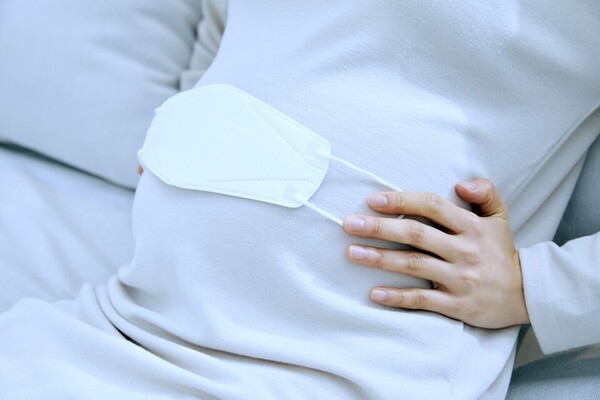A Korean medical team has published a study suggesting that exposure to ultrafine particulate matter (PM2.5) during pregnancy may adversely affect fetal development.
A research team led by Professor Kim Young-ju of the Department of Obstetrics and Gynecology at Ewha Womans University Mokdong Hospital said Tuesday that exposure to PM2.5 during pregnancy can alter placental microstructure and damage fetal capillary mitochondria.

The findings were recently published in the international journal Reproductive Toxicology under the title “Impact of Particulate Matter 2.5 on Placental Microstructure, Including Mitochondrial Damage through Oxidative Stress.”
The researchers analyzed placental tissue from nearly 900 pregnant women between 2020 and 2023, dividing participants into two groups based on their level of exposure to ultrafine particulate matter during pregnancy: high exposure (>15 μg/m³) and low exposure (<15 μg/m³).
Detailed analysis using transmission electron microscopy revealed severe structural changes in the placental chorionic cells of the high-exposure group, including loss and shortening of microvilli, increased basement membrane thickness, vacuole formation, and vesicle swelling.
Mitochondria in fetal capillaries within the placenta were also damaged. Disruption of the mitochondrial double membrane structure and cristae was observed in the high-exposure group.
The team also analyzed oxidative stress markers in blood samples and found increased levels of malondialdehyde (MDA) and superoxide dismutase 2 (SOD2) in the high-exposure group. These results suggest that oxidative stress from PM2.5 exposure is a key mechanism behind placental damage.
The researchers explained that PM exposure during pregnancy does not only affect the respiratory system but can have direct adverse effects on fetal development by causing functional damage to the placenta.
“We have directly confirmed with electron microscopy that PM2.5 damages the placental microstructure,” said Professor Kim, who led the study. “Pregnant women are advised to avoid outdoor activities on days with high PM2.5 concentrations and to pay special attention to managing indoor air quality.”
Kim added that the study has attracted international attention and is expected to provide important scientific evidence for strengthening ultrafine particulate matter standards and related policies to protect the health of pregnant women.
The study is part of the Air Pollution on Pregnancy Outcome (APPO) cohort study, which examines the impact of air pollution on pregnancy outcomes. The researchers evaluated placental changes by directly observing its ultrastructure through electron microscopy.

